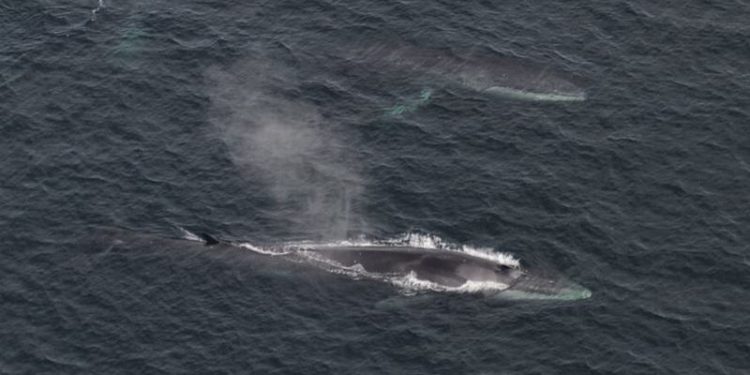Funding support from Canada’s Atlantic Fisheries Fund to a variety of enterprises in Nova Scotia includes a pilot study into the effectiveness of ropeless technology for the lobster industry to reduce whale entanglements.
The Canadian government and the Province of Nova Scotia have together announced support for fishing and seafood sector enterprises in the province where one in every five jobs is linked to the ocean. These projects are intended to help to innovate and grow the local economy while protecting the environment.
‘Our government is working with our partners to make Canada’s fish and seafood sector more innovative, productive and sustainable. We are boosting the local economy and increasing employment opportunities in small coastal and Indigenous communities, while also ensuring the health of our fisheries for future generations,’ said Jonathan Wilkinson, Minister of Fisheries, Oceans and the Canadian Coast Guard.
Coldwater Lobster Association (CLA) will conduct a pilot study on the effectiveness and practicality of ropeless fishing gear technology for the commercial lobster industry within Fishing Area 34 (LFA 34). CLA is partnering with an oceans technology company, to test and evaluate ropeless fishing gear, acoustic receivers and related technology.
IMO Foods Limited will upgrade its seafood canning operations by installing a new processing system to improve productivity that will help reduce energy consumption and lower emissions. In addition, this new technology will help meet evolving food safety requirements and help the company expand to international markets.
Eel Lake Oyster Limited will adopt new oyster grading technology that can be used on a barge while still on the water, allowing it to streamline its aquaculture operations and improve the quality of its product. Beyond this, its operations will become more sustainable through the use of solar energy to power this new technology.
Six tuna fishing enterprises will purchase and install new ‘greenstick’ trolling equipment on their vessels, allowing them to adopt more efficient tuna fishing practices. The greenstick technology allows harvesters to reduce unwanted by-catch, maximise productivity of fishing practices and ensure higher quality of the product.
Funding for these projects includes approximately $573,000 through the Atlantic Fisheries Fund, along with a $195,000 repayable contribution (for IMO Foods Limited, specifically) through the Atlantic Canada Opportunities Agency’s Business Development Program.
The $573,000 contribution derives from over $400 million in Atlantic Fisheries Fund support, jointly funded by the federal and provincial governments, and focuses on increasing opportunities and market value for sustainably sourced, high-quality fish and seafood products from Atlantic Canada.
‘We recognise the importance of Canada’s seafood industry,particularly in Atlantic Canada, that’s why we will provide up to 70% of funding to businesses in our seafood sector to meet growing demands,’ said South Shore – St Margarets MP Bernadette Jordan.
‘We know in Nova Scotia we have a high quality, sustainably sourced, and a high demand product and we will help ensure businesses are able to get their products to market.’









